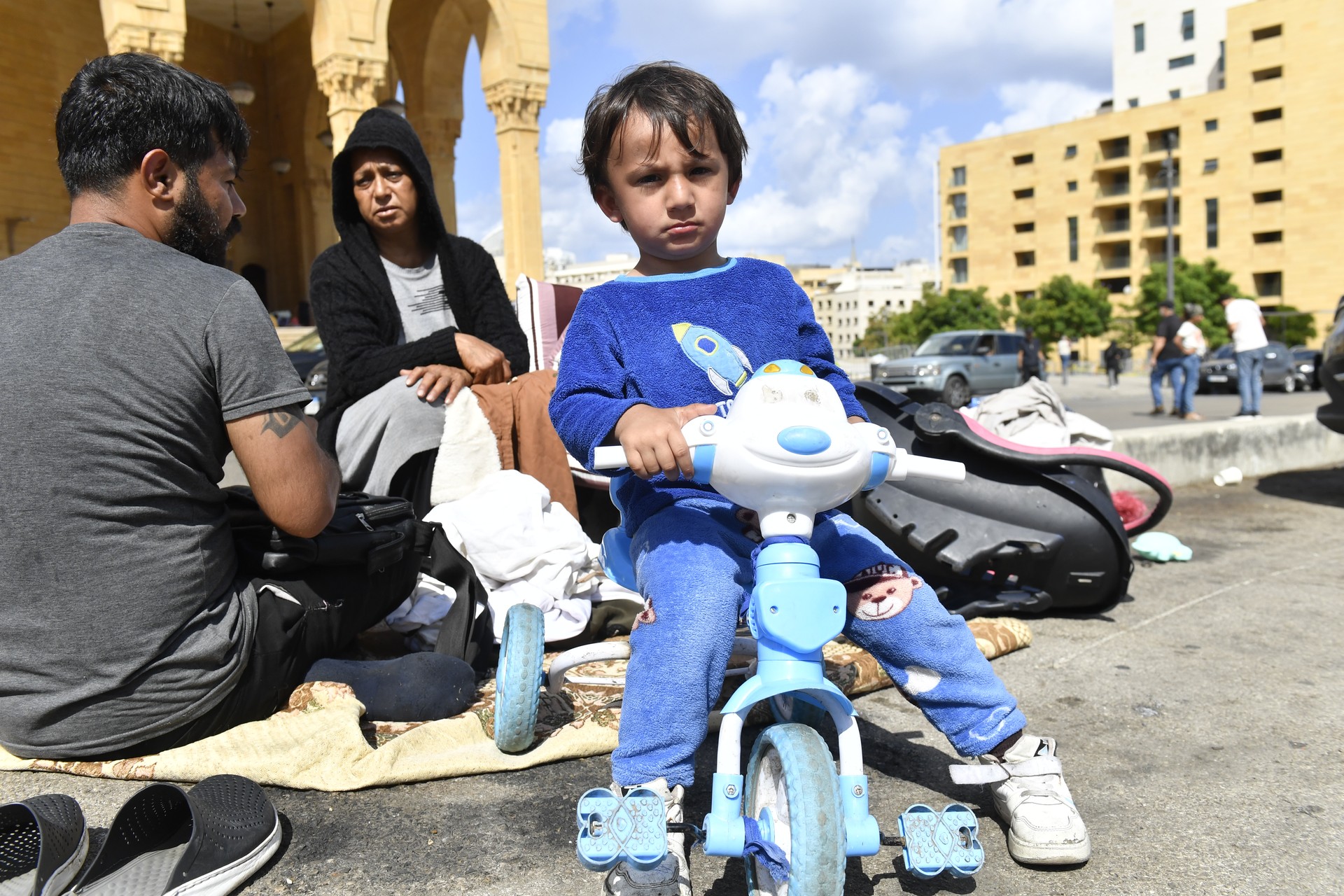
A new children’s book published by an Israeli settler has sparked controversy, depicting Lebanon as a future part of Israel amid escalating tensions between the two countries. The book, titled Alon and Lebanon, is the latest cultural effort by Israeli settlers to normalize territorial claims over Lebanon as the Israeli government advances its military operations along the northern border.
In a viral video circulating on social media platforms, including X (formerly Twitter), an Israeli settler father is seen reading the book to his young son. The book, authored by Amos Azariah, a professor at Ariel University in an illegal West Bank settlement, tells the fictional story of a young Israeli boy, Alon, who lives in the Misgav Am kibbutz near the Lebanese border. Forced to flee due to conflict with Hezbollah, Alon reminisces about the scenic views of Lebanon he used to enjoy from his home, lamenting, “This is Lebanon, it is beautiful. I love to go to Lebanon and stroll there.”
The book’s narrative escalates when Alon is told he cannot visit Lebanon because "it is not ours yet." Alon then declares, “Lebanon is ours,” marking a clear attempt to plant ideological claims of ownership over the neighboring country in the minds of young readers.
The book, reportedly crowd-funded by the extremist settler group ‘Wake Up North,’ has drawn particular attention for its use of children's literature to promote the expansionist goals of settler movements. The group, alongside other far-right organizations like Uri Tzafon and Nachala, aims to extend Jewish settlements into southern Lebanon, part of a broader vision of establishing what some refer to as "Greater Israel."
Azariah’s book features Al-generated illustrations and is priced at 88 shekels (approximately $24), with the author also offering home workshops for 1,980 shekels. The publication and promotion of Alon and Lebanon come at a time when Israeli forces have ramped up operations against Hezbollah, although the Israeli government has not formally announced plans to occupy or settle in Lebanon.
Uri Tzafon, the group behind the book’s publication, has been linked to recent advertisements promoting future property sales in southern Lebanon, a move seen as part of a broader settler push to colonize the region. While Israeli officials have not confirmed such intentions, these developments signal a growing alignment between military action and the ambitions of settler groups.
This cultural campaign, using children’s literature to promote a territorial agenda, marks a shift in the way settler movements are framing their long-term goals. With settler organizations like Uri Tzafon openly calling for the occupation and settlement of southern Lebanon, Alon and Lebanon seems to serve as a tool to instill these aspirations in the next generation of settlers.